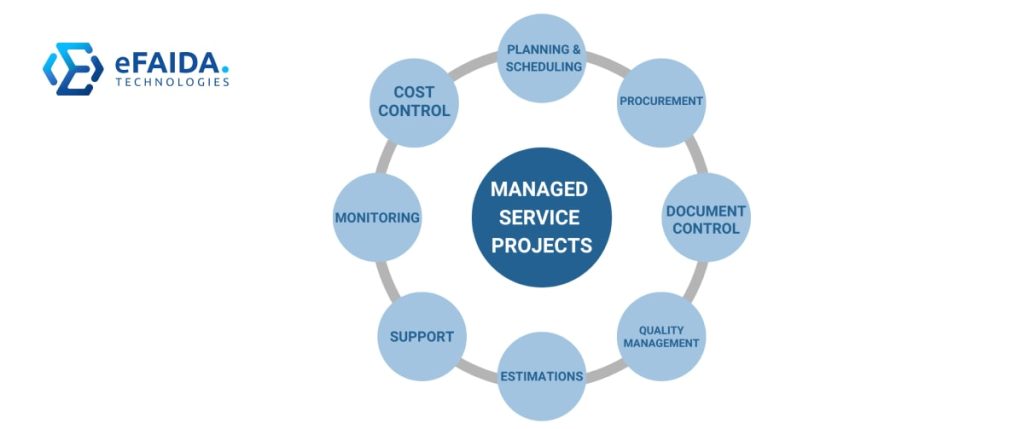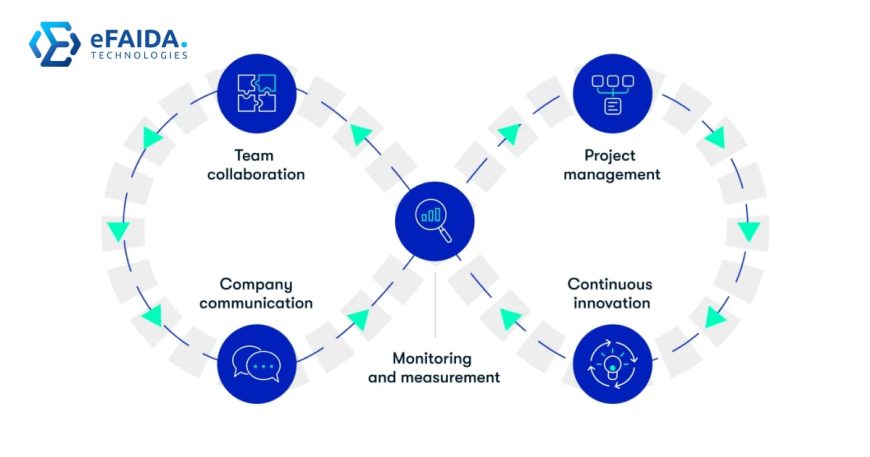Introduction
DevOps as a managed service (DaaMS) is emerging as a trend since organizations are now looking at the ways in which they can better manage their software development and IT operations. Nevertheless, there are various myths and misconceptions about the adoption of DaaMS as a learning model. In this article, I explain how four of the most popular myths about DevOps as a managed service are nothing more than myths and how to work effectively with an MSP to successfully implement and manage your DevOps practices.
Myth 1: DevOps as a Managed Service is Only for Large Enterprises
Reality: DevOps as a managed service offering can benefit businesses of all sizes starting from startups and small businesses. This creates room for the managed service providers to develop scalable solutions that may suit every client’s capacity and pocket.
Myth 2: Managed Service Providers Take Control Away from Internal Teams
Reality: The key research finding is that while managed service providers actively engage in the provision of DevOps services, they do so in close cooperation with internal teams. They offer insight and assistance, however, the final choice remains with the organization, guaranteeing the participation an internal team in key decisions.
Myth 3: DevOps as a Managed Service is Too Expensive
Reality: What is more, although the introduction of DevOps as a managed service entails certain one-time costs, it might end up being cost-efficient in the long run. Outsourcing allows an organization to procure services that are elastic in nature thus easily evolving with the stability of the organization without requiring the organization to build the required infrastructure and hire the required personnel.
Myth 4: Managed Service Providers Offer One-Size-Fits-All Solutions
Reality: Compared to the traditional break-fix model, managed services are business solutions that are designed to fulfill the needs of different companies. It is usually characterized by their ability to collaborate with the clients to establish what the client needs, as well as create a solution that addresses the specific needs of the client.
Myth 5: DevOps as a Managed Service is Only About Automation
Reality: Thus, Automation remains as a significant part of DevOps, but does not encompass the entire concept. Managed DevOps help in defining a way of working or a reference model for software development and IT operations to function as a team.

Myth 6: Managed Service Providers Cannot Provide the Same Level of Security as Internal Teams
Reality: Usually, managed service providers give consideration to the security and compliance requirements that are in their services. They use strict security measures like DevSecOps, Automated Security Testing, and Constant Security Monitoring in order to ensure that their programs and data are well protected.
Conclusion
Some of the advantages of utilizing DevOps as a managed service in businesses embracing the idea to enhance their infrastructure of Software Development and IT are; What this means is that, by dismantling myths and misconceptions, organisations are in a position to capture the actuality of DevOps implementation in a managed-service model and consequently decide on the viability of managed service providers to aid in their DevOps journey.
While enterprise organizations press on with the applicability of DevOps principles within their organizations, it is imperative to acknowledge the benefits from the contribution of managed service providers to organizations, the enhanced effectiveness, flexibility, and creativity on top of their list.
FAQs about DevOps as a Managed Service
- What is DevOps as a managed service?
DevOps as a managed service aims at outsourcing the promotion of DevOps practices to an external service provider. This embodies the adoption, sustainment, and improvement of these tools and processes aiming at improving SW development and IT operations. - Is DevOps as a managed service only for large enterprises?
However, it is important to note that DevOps-managed service is not associated with the size of the organization, whether a start-up or a small business. Outsourcing providers also provide the choice of flexible solutions that are suitable to the affordability of the smaller companies. - Do managed service providers take control away from internal teams?
No, managed service providers assist, cooperate, and coordinate with internal IT teams to deploy and maintain DevOps solutions. They can offer assistance and guidance but decisions are made by the particular organization it is affiliated to. - Is DevOps as a managed service too expensive?
The only drawback that is worth mentioning is the cost of implementation, however, DevOps implemented as a managed service can result in numerous cost-saving scenarios. On a localized basis, dealing with managed service providers enhances the benefit of availability, flexibility of cost, and service that can be scaled depending on organizational requirements and hence, there is no need for more infrastructure and personnel to be hired. - Do managed service providers offer one-size-fits-all solutions?
No, managed service providers provide services specific to the company’s requirements without any sort of compromise. Clients are always involved and have their demands and difficulties incorporated into problem-solving into new procedures and systems. - Is DevOps as a managed service only about automation?
No, the automation of numerous processes is part of the task, but DevOps as a managed service is much more than it, it is a set of practices, relations with other teams, and constant strife for improvements.




